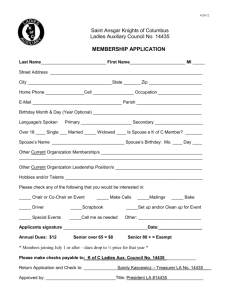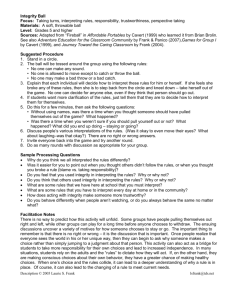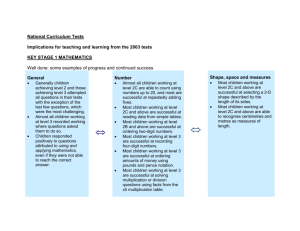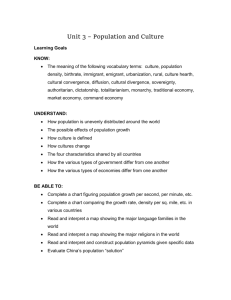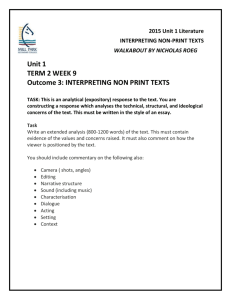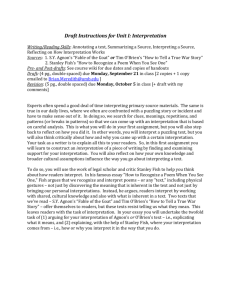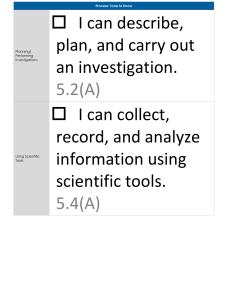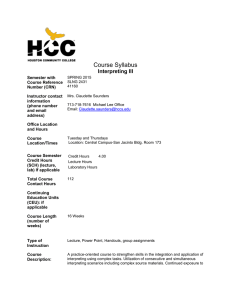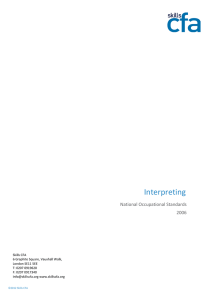Message Analysis in Interpretation
advertisement
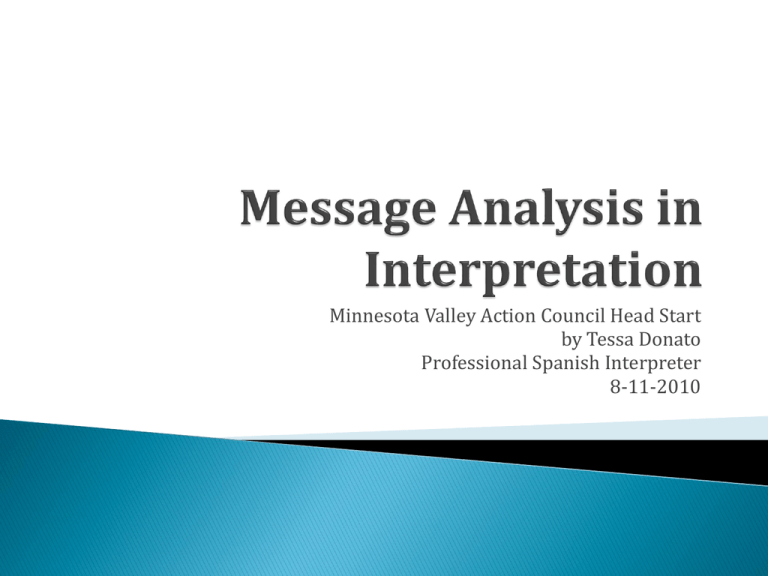
Minnesota Valley Action Council Head Start by Tessa Donato Professional Spanish Interpreter 8-11-2010 Word-for-word What you think it should be What you don’t think it should be Just using the dictionary to look up the word you do not know. Does anyone know? Interpreting the meaning of what someone is saying Looking for equivalents NOT to be confused with false cognates We can’t interpret OR translate something that we do not understand. Understanding a message when it is not for us personally…. I.e. Meeting someone for the first time and interpreting for them. You have no idea what their medical needs are. You have no background information and you do not know the person personally. In what ways is the word ‘cold’ used? In what ways is the word ‘hot’ used? What are some others? Before the interpreting assignment *Request a briefing *Gather information in both languages regarding the medical issues *Talk to the person over the phone to get an idea of their way of talking *Ask the person if it okay for you to interpret for them. *More suggestions… Refers to facts, ideas, information and other objective material verbally spoken *I.e. “Tom has a brown four door” What do you hear? What does it mean? What are the facts? What are the ideas? What other information is there? Listen for IDEAS….not words. Ideas take longer to express. Listen for patterns. Use prediction to help you remember how to interpret the ideas. Is an idea, thought, or concept. A sentence may include several: I.e. “Tom has a brown four door” 1) There is a car 2) The car is brown 3) The car has four doors 4) The car is owned by somebody named Tom How many ideas do you hear? Pick out the ideas you hear….. Every time we speak there is a reason why we say what we do… Think about when you speak to your child *when you speak to your spouse or boyfriend *to your elders *to a stranger Why is the person speaking? What is their/his/her purpose? To make us laugh? To instruct? To manipulate? Is a variety of things…. ---special vocabulary ⇨ slang/colloquialism ---intonation ---facial expression ---gesture ---syntax (i.e. the car hat is on.) 1. the grammatical arrangement of words in sentences 2. a systematic orderly arrangement 3. studies of the rules for forming admissible sentences Frozen – Something that can only be said one way --Miranda rights, --prayers, --poems, --clichs, --idioms, --riddles, --rhymes Formal ---lecture – large college classes ---speech – Ex. Abraham’s famous speech ---sermons – religious ---legal settings – highly formal, structured, predictable Consultative ---general every day talk, calling a person by name (not nickname—that’s informal); can also be informative Example: Ladies, ladies…please. Myt mother always taught me not only that I have a right to disagree, but that I should always be polite when doing so. Informal ---speaking to friends Intimate ---conversation with spouse etc. ---basically for closer relationships Affect ---is the emotion and toneconveyed in the text Via *volume *stress patterns *vocabulary choices *linguistic and paralinguistic clues given by speaker
